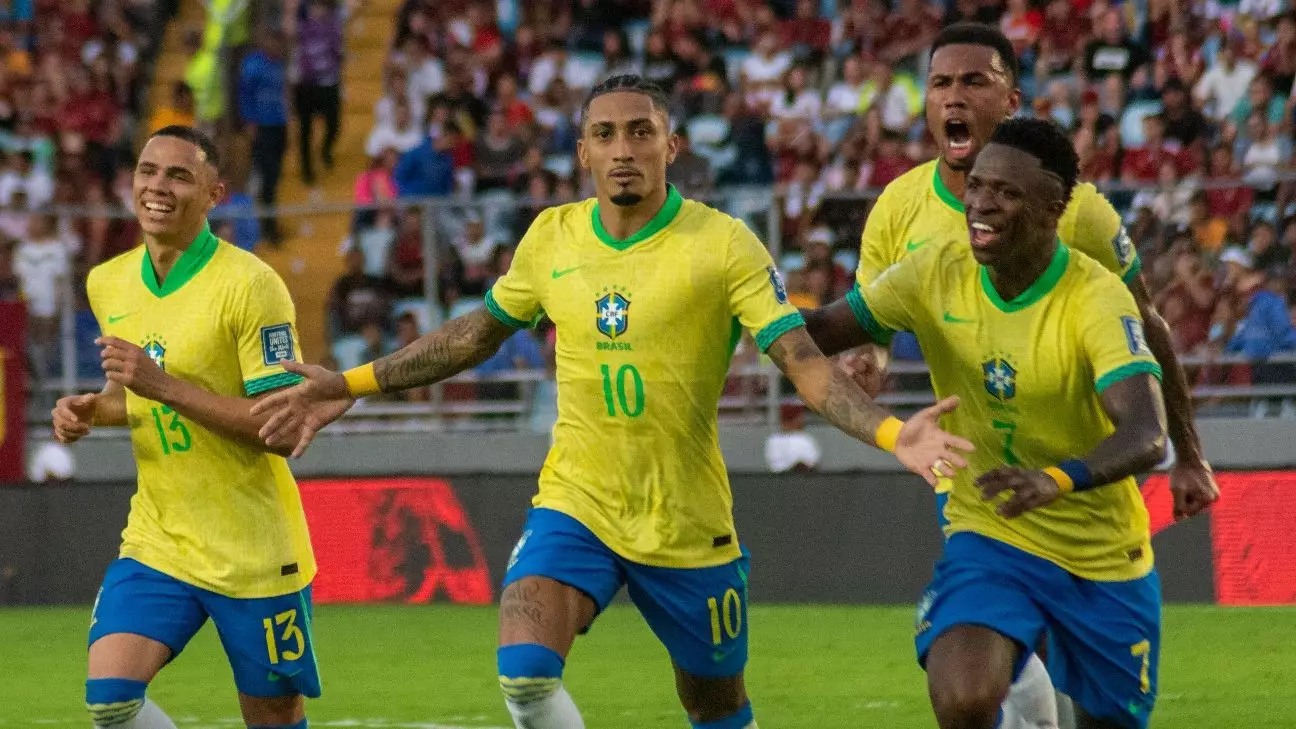In a strategic move that underscores the dynamic nature of sports marketing, Brazil’s football federation (CBF) has confirmed an extension of its lucrative partnership with Nike, set to last until 2038. The agreement, valued at an astounding $100 million per year plus additional royalties from national team merchandise sales, marks a significant leap in the relationship that began in 1996. This long-term collaboration not only highlights Brazil’s status in the soccer world but also emphasizes Nike’s commitment to advancing the global stature of the sport.
What makes this deal particularly noteworthy is the shift in terms that allows the CBF unprecedented control over licensing and merchandising. Unlike previous contracts, which mainly focused on apparel, the new agreement enables Brazil’s federation to establish its retail presence worldwide. This move could potentially increase revenue streams and provide fans with greater access to national team merchandise. CBF president Ednaldo Rodrigues expressed pride in the partnership, suggesting that it symbolizes the resilience and strength of Brazilian soccer—a narrative that resonates deeply with fans and players alike.
The term “jogo bonito,” which translates to “the beautiful game,” embodies the spirit of Brazilian soccer, celebrated for its style, creativity, and flair. The continued partnership with Nike is a testament to both entities’ commitment to not just maintaining but enhancing the legacy of this philosophy. The federation’s renewed vow to “celebrate the brilliance of Brazilian soccer” reinforces their cultural identity while ensuring that commercial interests align with footballing traditions.
This deal comes at a time when Nike is solidifying its influence across the football landscape. Their recent contract with the German football federation—valued at approximately €100 million—illustrates a shift in allegiances within football apparel, particularly with Adidas, which has dominated the German scene for decades. Such shifts reflect branding strategies that prioritize innovation and appeal to the evolving demographic of football fans globally. Other nations like England, France, and Australia have also joined Nike’s ranks, suggesting a larger trend of national teams opting for the brand that aligns with their competitive ethos.
Looking ahead, the ramifications of this partnership extend beyond immediate financial gain. The deal acts as a pioneering model for how sports federations can leverage their brand while honoring their cultural heritage. With the CBF now given room to maneuver in product licensing and global retailing, Brazil’s soccer future looks promising—not only in terms of human talent and competitive edge but also in nurturing a robust economic ecosystem that underpins it all.
The long-standing relationship between Brazil and Nike is more than just a commercial agreement; it symbolizes a shared vision for the future of soccer, blending tradition with modernity. As the world watches how this partnership unfolds, it becomes increasingly clear that the beautiful game will continue to thrive on both the pitch and in the marketplace.

